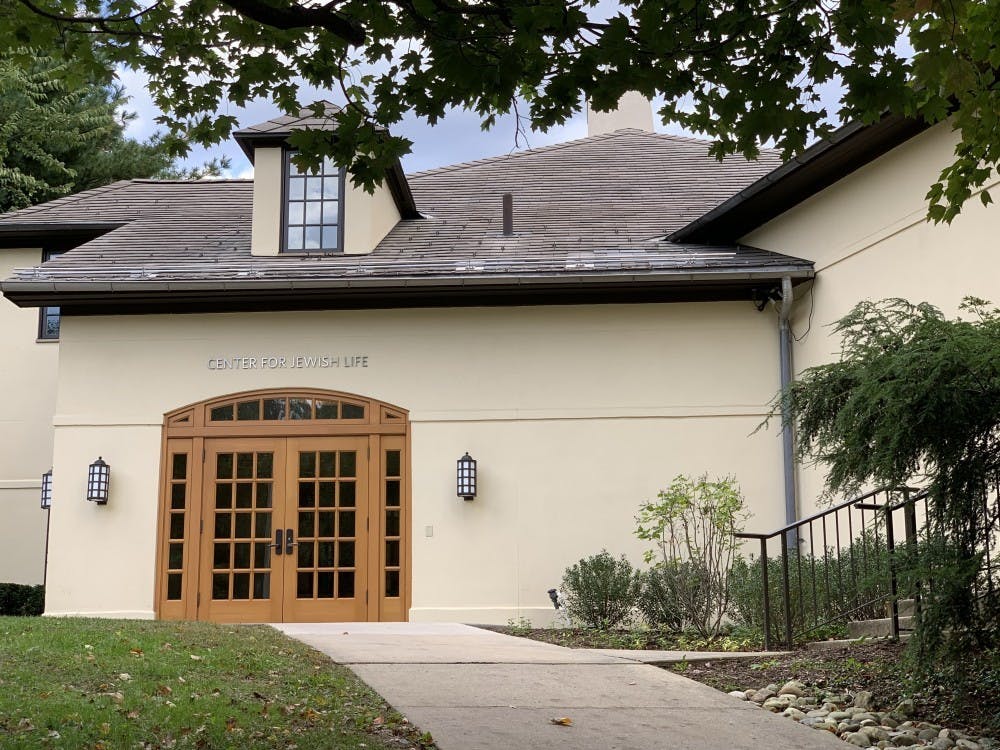The following is a guest contribution and reflects the author’s views alone. For information on how to submit an article to the Opinion Section, click here.
The Caterpillar Referendum that Princeton undergraduates will be voting on this month utilizes a seemingly innocuous issue — whether to use Caterpillar machinery for campus construction projects — as a vehicle for hatred and bigotry that will undoubtedly harm students in our community.
The language in the referendum seeks to ban the machinery because of the company’s alleged role in the “demolition of Palestinian homes, the murder of Palestinians and other innocent people, and the promotion of the prison-industrial complex.” In reality, though, the referendum does nothing to confront the situation at hand, or to ameliorate the conditions of Palestinians. In addition, it situates itself within the global anti-Israel Boycott, Divestment, and Sanctions (BDS) movement.
The official explanation of the resolution presented by the Princeton Committee on Palestine directly cites BDS as an argument in favor of advancing it to a vote — even as the sponsors exclude any explicit mention of BDS from the more visible referendum language itself.
As practicing Jews and proud Zionists, we are deeply concerned about the introduction and circulation of this referendum. Furthermore, as members of the Princeton community, which has long committed itself to work “in service of humanity,” we are troubled by this misleading effort, which will alienate Jewish and Zionist students from the broader campus community and compromise students’ well-being.
All other Princeton students should also be concerned by the referendum, regardless of their background, heritage, or political leanings.
The global BDS movement was founded by figures who object to Israel’s existence, while seeking to destroy it. Founding member Omar Barghouti said, “most definitely, we oppose a Jewish state in any part of Palestine.” Movement leaders impose a double standard upon the Jewish state, denying the Jewish right to self-determination in their ancestral homeland while not objecting to the statehood of other nations. Such a double standard, not demanded of any other nation, is categorically antisemitic.
One of BDS’s primary prongs is to push governments and organizations — and universities in particular — to divest from corporations affiliated with the Jewish state in any manner. Caterpillar, in particular, has become one of the foremost corporate targets of BDS because of its dealings with the Israeli government.

The official explanation for the referendum bluntly explains, “Caterpillar is listed as one of the only targeted construction companies in the national Boycott, Divestment, and Sanctions (BDS) movement” — leaving no doubt about why they are being singled out at Princeton.
The BDS movement is not only grounded in antisemitism; it also nurtures an environment where acts of hate are perpetrated against Jewish people and communities.
The advent of BDS referenda at American universities over the past few years has tracked closely with sharp increases in hateful attacks against Jews on college campuses. As previously reported in The Princeton Tory, when Princeton students voted on another BDS-aligned referendum in 2015, Rabbi Julie Roth of the Center for Jewish Life (CJL) reported 12 antisemitic incidents in just two months, including “swastikas, attacks on social media and in the [The Daily Princetonian], and hacks to personal and organizational email accounts.” Rabbi Roth, in her capacity as Jewish Chaplain, recalls having reported “no cases of antisemitism in the previous 10 years” on campus.
If the 2015 referendum serves as precedent, this referendum is likely to exacerbate the same trends in the Princeton community: an increase in hateful behavior and rhetoric towards Jewish students, similar to what we saw in response to heightened tensions and violence in the region this past May. At the same time, it will have absolutely no tangible impact on the conditions of either Israelis or Palestinians (whose own government uses Caterpillar equipment for Palestinian Authority projects).

Instead of supporting a resolution that is rooted within a bigoted global movement, we ought to cultivate a Princeton campus where all students can safely cherish their identities and express their sentiments; where we collectively engage in a discourse free of hostility and intimidation; and where we sustain a positive environment for ourselves and future generations of Princeton students.
If the undergraduate student body is to commit ourselves toward the highest principles of fairness, tolerance, and justice, we must vote against this resolution.
Jared Stone is a sophomore and Politics concentrator from Las Vegas, NV. He is president of Tigers for Israel. He can be reached at jaredstone@princeton.edu.
Orli Epstein is a sophomore and Mechanical and Aerospace Engineering concentrator from New York City, N.Y. She is vice president of Tigers for Israel. She can be reached at oepstein@princeton.edu.








